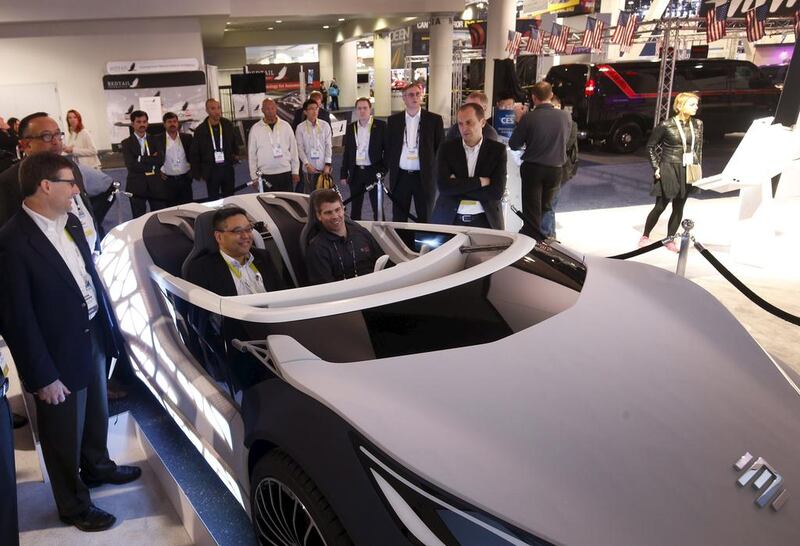As any motorist knows, learning to drive a car takes time and the route to becoming a confident – and safe – road user often leaves instructors white-knuckled with nerves.
But how would a novice robot driver learn the art of safe roadcraft?
The German firm Bosch says it has the answer – and Dubai has, in part, been an inspiration for its development.
At the international Bosch ConnectedWorld 2017 conference in Berlin, the supplier of technology and services presented an onboard computer that, thanks to artificial intelligence (AI), can apply machine learning methods to the robot at the wheel of a driverless car.
And it said Dubai is pushing the development and take-up of technology such as robots that can learn.
“Ensuring that science and technology are suitably harnessed to deliver citizen wellbeing, Dubai is accelerating the adoption of AI with the recent announcement of the international competition to find the best use for artificial intelligence and robots,” said Volker Bischoff, the general manager and vice president for Bosch Middle East.
The company said its AI onboard computer is expected to guide self-driving cars through even the most complex traffic situations, and ones that are new to the vehicle.
Cars already use Bosch sensors to monitor their surroundings and through AI, they will be able to use that data to predict the behaviour of other road users, Bosch said.
“We are teaching the car how to manoeuver through road traffic by itself,” said Volkmar Denner, the chairman of Bosch.
Apart from other vehicles, Bosch’s AI onboard computer can recognise pedestrians or cyclists. AI also makes it easier for automated vehicles to assess a situation. For instance, cars that have a left or right indicator turned on are more likely to change lanes than those that do not – although the absence of a flashing indicator does not mean a car will not change lanes or turn.
Still, Bosch said a self-driving car with AI can factor these situations into its own driving. The computer stores whatever it learns in artificial neural networks – its robot brain.
This data can transmitted to any number of other AI onboard computers in an update.
The company has teamed up with the US firm Nvidia to build the computer and the AI brain box is expected to go into production by the beginning of the 2020s at the latest.
“As early as the next decade, driverless cars will be a part of everyday life ,” said Mr Denner.
“Automated driving makes roads safer, and artificial intelligence is the key to making that happen. We are making the car smart,” he added.
chnelson@thenational.ae
Follow The National's Business section on Twitter





